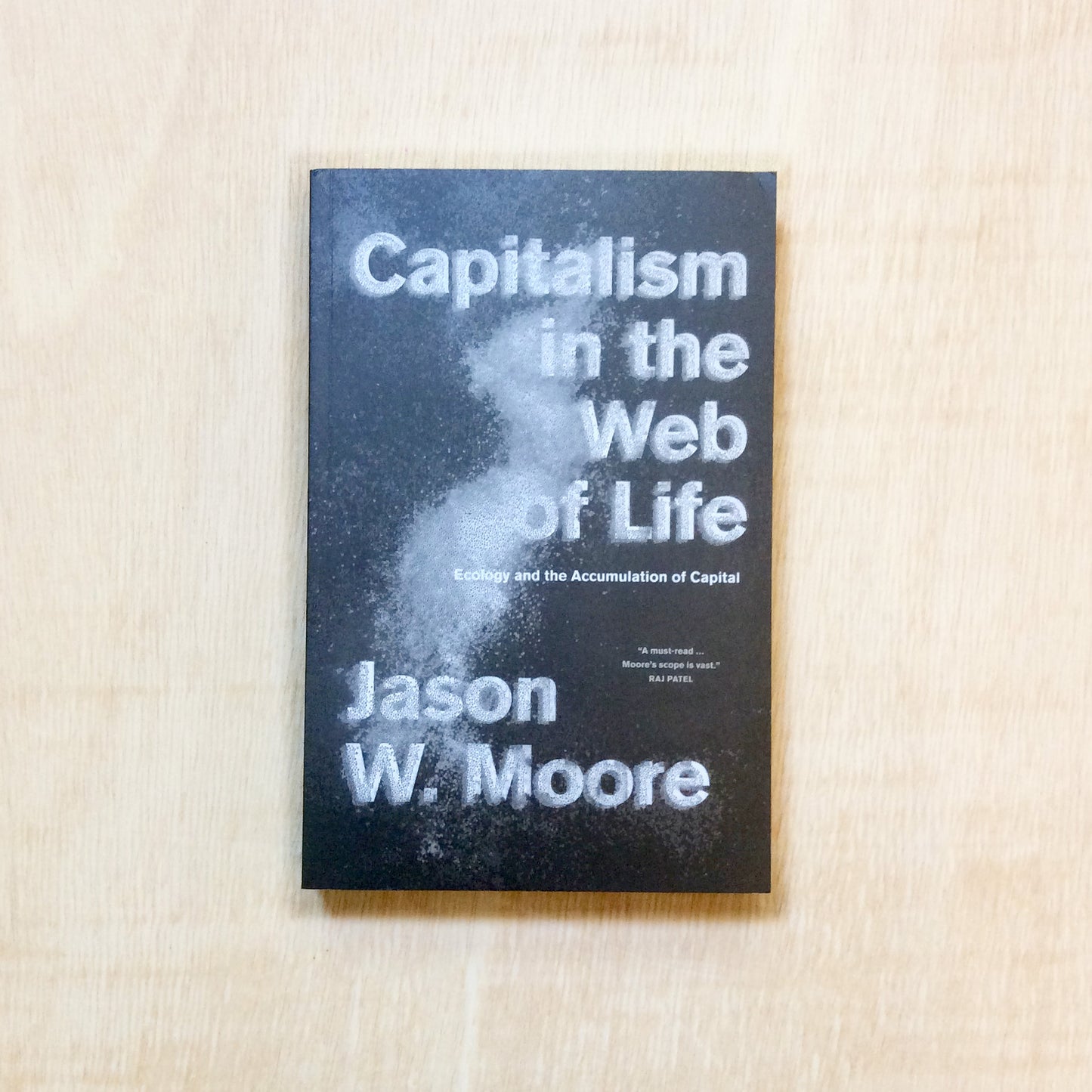Capitalism in the Web of Life - Ecology and the Accumulation of
Capitalism in the Web of Life - Ecology and the Accumulation of
Jason W. Moore
Verso Books
2015
9781781689028Softcover
24 x 16 x 2.60
336 pages
Regular price
27,00 €
Regular price
Sale price
27,00 €
Unit price
per
Tax included.
Couldn't load pickup availability
Finance. Climate. Food. Work. How are the crises of the twenty-first century connected? In Capitalism in the Web of Life, Jason W. Moore argues that the sources of today’s global turbulence have a common cause: capitalism as a way of organizing nature, including human nature. Drawing on environmentalist, feminist, and Marxist thought, Moore offers a groundbreaking new synthesis: capitalism as a “world-ecology” of wealth, power, and nature. Capitalism’s greatest strength—and the source of its problems—is its capacity to create Cheap Natures: labor, food, energy, and raw materials. That capacity is now in question. Rethinking capitalism through the pulsing and renewing dialectic of humanity-in-nature, Moore takes readers on a journey from the rise of capitalism to the modern mosaic of crisis. Capitalism in the Web of Life shows how the critique of capitalism-in-nature—rather than capitalism and nature—is key to understanding our predicament, and to pursuing the politics of liberation in the century ahead.
Read the introduction here
Jason W. Moore is an environmental historian and historical geographer at Binghamton University, where he is professor of sociology. He is author or editor, most recently, of Capitalism in the Web of Life (Verso, 2015), Capitalocene o Antropocene? (Ombre Corte, 2017), Anthropocene or Capitalocene? Nature, History, and the Crisis of Capitalism (PM Press, 2016). His books and essays on environmental history, capitalism, and social theory have been widely recognized, including the Alice Hamilton Prize of the American Society for Environmental History (2003), the Distinguished Scholarship Award of the Section on the Political Economy of the World-System (American Sociological Association, 2002 for articles, and 2015 for Web of Life), and the Byres and Bernstein Prize in Agrarian Change (2011). He coordinates the World-Ecology Research Network.

